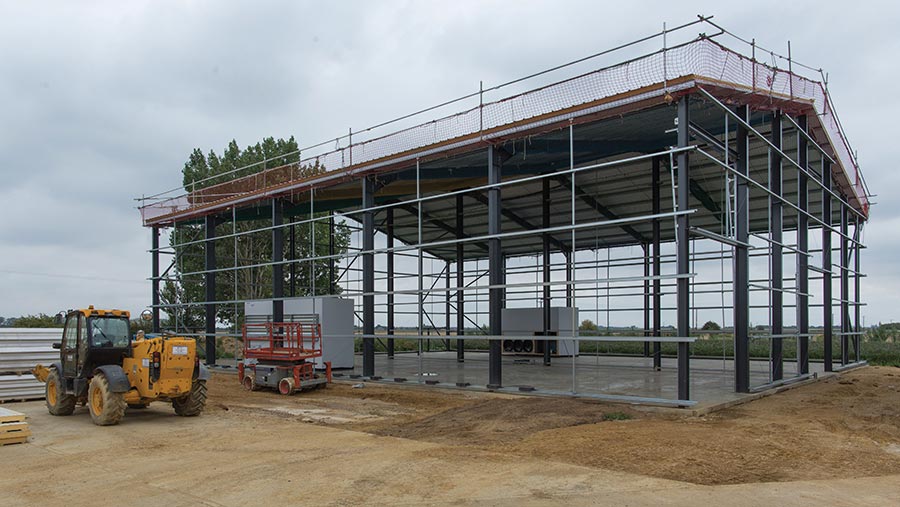Business Clinic: What can I do about flooding after neighbour’s building work?
 © Tim Scrivener
© Tim Scrivener Whether it’s a legal, tax, insurance, management or land issue, Farmers Weekly’s Business Clinic experts can help.
Here Russell Reeves, from Thrings’ agriculture team, explains what approach to take if a neighbour’s activities may have damaged your property.
See also: Business Clinic – how do we clarify elements in a will?
Q. My neighbour has built a large farm building on his land and carried out various excavations in the process. As a result our home was recently flooded, which has never happened before. What can I do?
A. This is a distressing situation and you are understandably keen to find a way to approach this with your neighbour. However, whether they are liable in law for the damage to your property depends on the circumstances.
Flooding may constitute a common law nuisance, but the law draws a distinction between “non-natural” uses of land and natural occurrences.
In non-natural use of the land – for example, collecting water in a man-made reservoir – the landowner would be “strictly liable” in law if water escaped onto neighbouring land.
In this scenario, strict liability means the injured party would be entitled to damages without the need to prove fault or negligence on the part of the landowner.
However, if the flooding is due to natural occurrences – for example heavy rainfall – the threshold for liability is higher.
Duty of care
Any landowner has a duty of care to their neighbours, and much will depend on whether this duty of care was exercised properly.
In particular, it should be considered whether the landowner could or should have reasonably foreseen the damage the flood water could cause and, if so, whether they failed to manage the problem.
Each case’s individual circumstances will be different, but if it can be proven that alterations made by your neighbour were the cause of flood damage to your property, there is likely to be a claim for common law nuisance.
The burden of proof would rest with you – you would need to prove that the flooding would not have happened if the alterations had not been made.
If flooding has not previously occurred before the excavations took place, this will work in your favour.
If you succeed, you are likely be entitled to compensatory damages for the cost of remedial work, and for any reduction in the value of your land as a result of the floods.
If your neighbour disputes your claim, then it may come down to the opinion of an expert about whether the works caused the flooding.
Court cases can be costly and time-consuming, and we would advise in the first instance that you establish the facts as far as you can before contacting your neighbour and requesting compensation.
If this fails, contact your insurers about making a claim, or seek legal advice to explore your options.
Do you have a question for the panel?
Outline your legal, tax, finance, insurance or farm management question in no more than 350 words and Farmers Weekly will put it to a member of the panel. Please give as much information as possible.
Email your question to FW-Businessclinic@markallengroup.com using the subject line “Business Clinic”.
